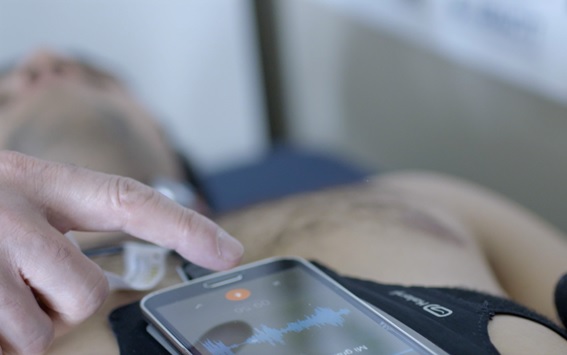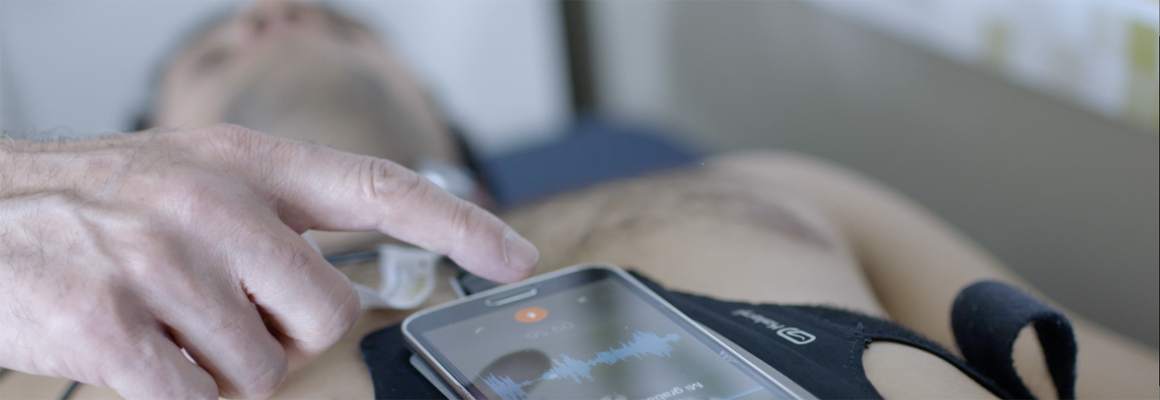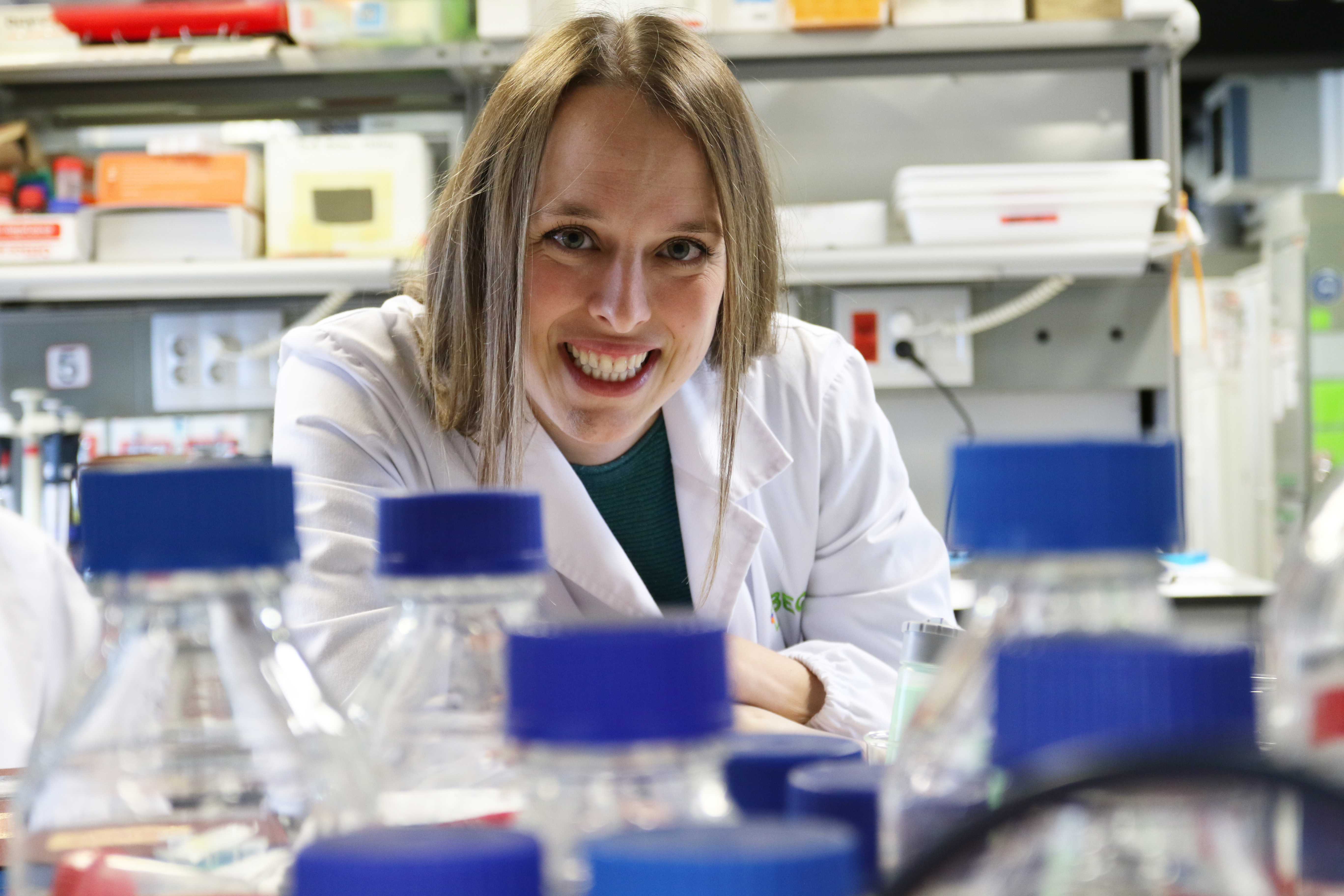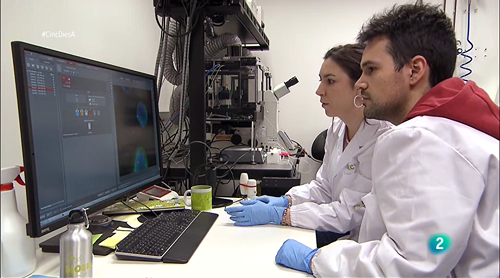A smartphone for detecting sleep apnea at home
 The Biomedical signal processing and interpretation group at the Institute for Bioengineering of Catalonia (IBEC) has developed a portable, cheap and non-invasive system to detect obstructive sleep apnea (OSA) at home, a disorder characterized by recurrent airflow cessation during sleep. Researchers propose a novel method consisting of analyzing acoustic signals recorded with a smartphone.
The Biomedical signal processing and interpretation group at the Institute for Bioengineering of Catalonia (IBEC) has developed a portable, cheap and non-invasive system to detect obstructive sleep apnea (OSA) at home, a disorder characterized by recurrent airflow cessation during sleep. Researchers propose a novel method consisting of analyzing acoustic signals recorded with a smartphone.
Sleeping, like breathing, is an action that we all undertake throughout our whole lives. Sleep, which represents more than 25% of our time, is the body’s natural state of rest and an important factor of self-regulation. However, several diseases can affect sleep quality, leading to symptoms of varying severity.


 The Biomedical signal processing and interpretation group at the Institute for Bioengineering of Catalonia (IBEC) has developed a portable, cheap and non-invasive system to detect obstructive sleep apnea (OSA) at home, a disorder characterized by recurrent airflow cessation during sleep. Researchers propose a novel method consisting of analyzing acoustic signals recorded with a smartphone.
The Biomedical signal processing and interpretation group at the Institute for Bioengineering of Catalonia (IBEC) has developed a portable, cheap and non-invasive system to detect obstructive sleep apnea (OSA) at home, a disorder characterized by recurrent airflow cessation during sleep. Researchers propose a novel method consisting of analyzing acoustic signals recorded with a smartphone.





 Application Deadline: 15/12/2019
Application Deadline: 15/12/2019